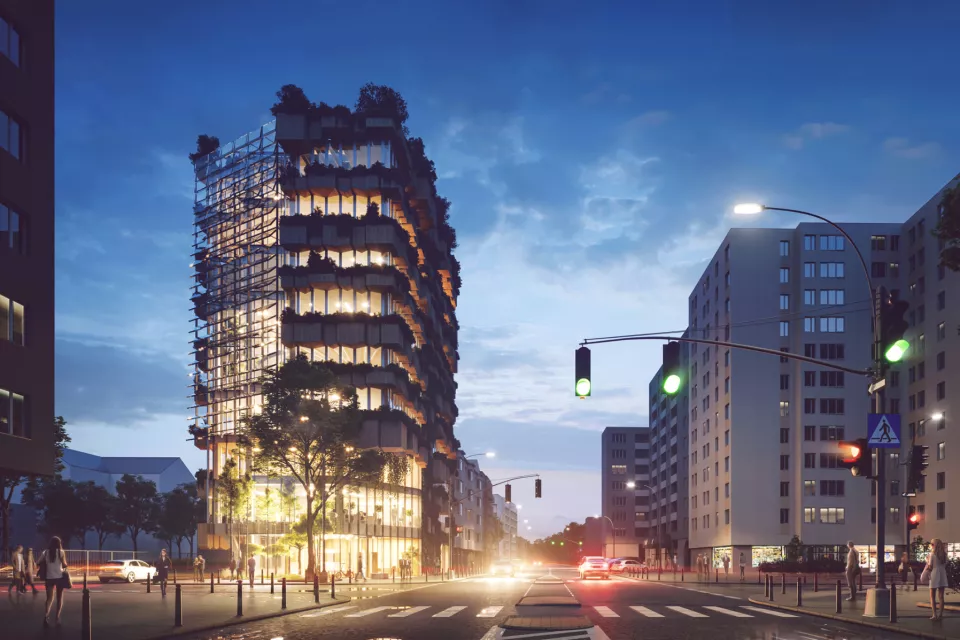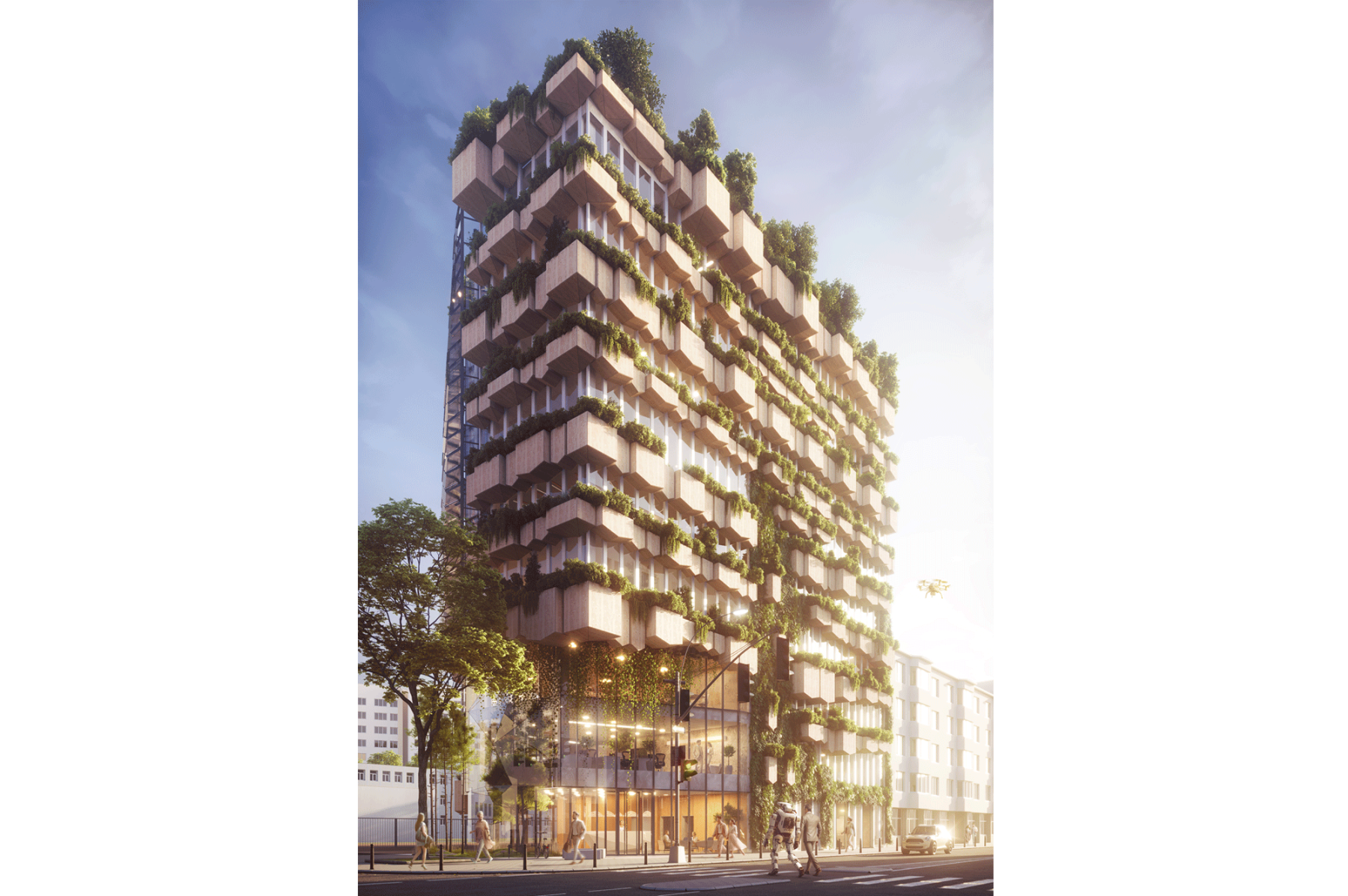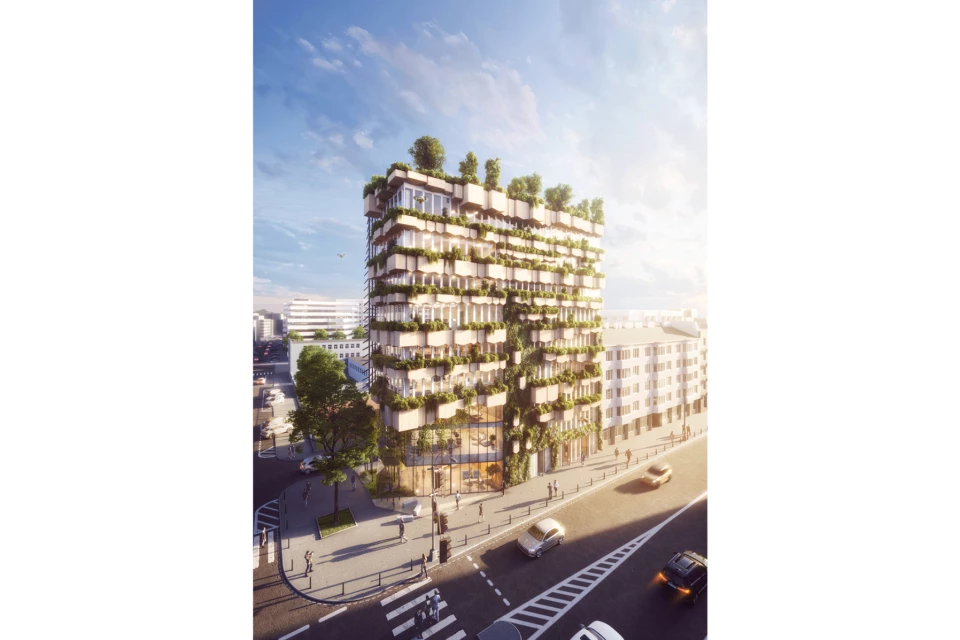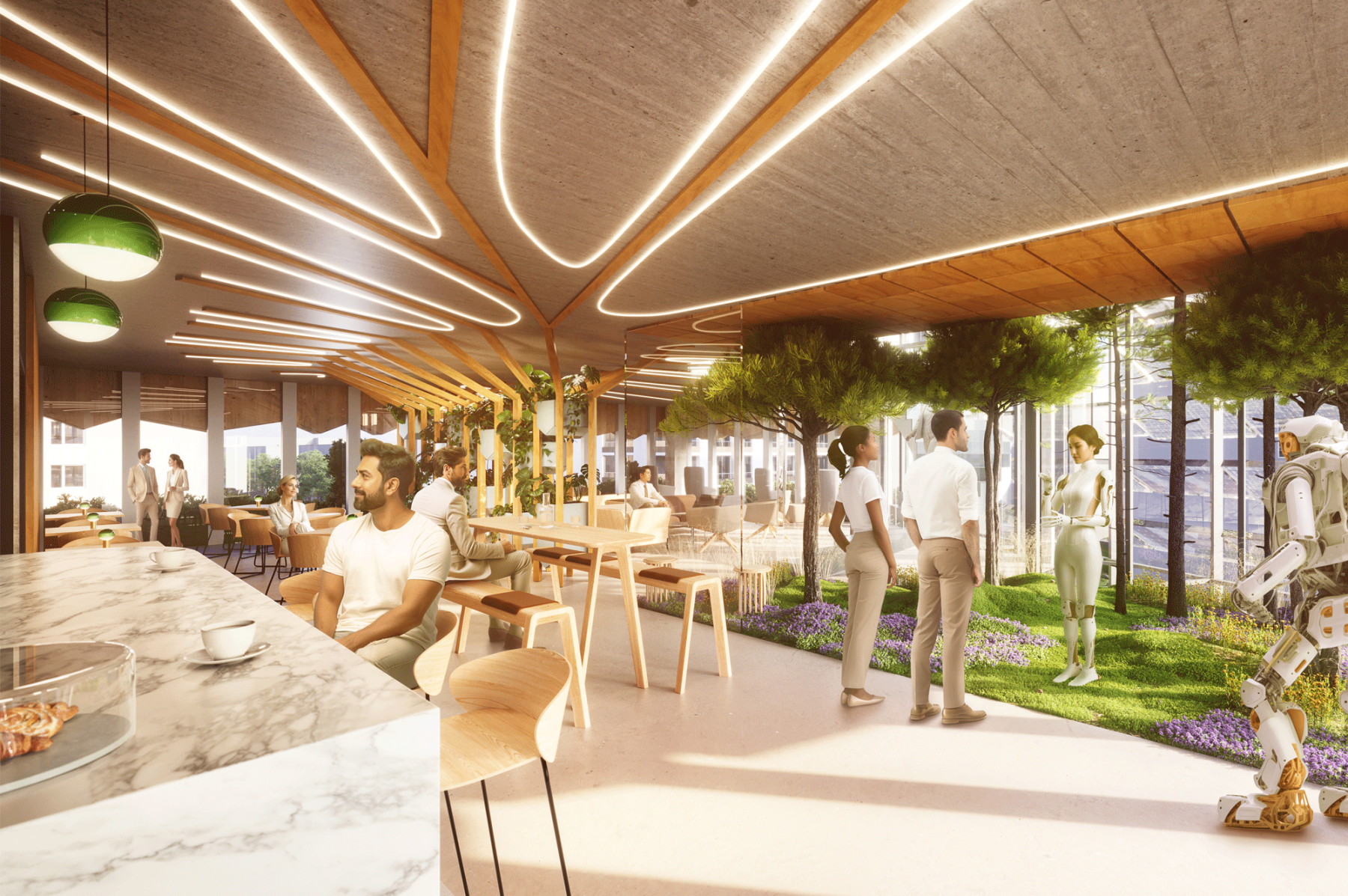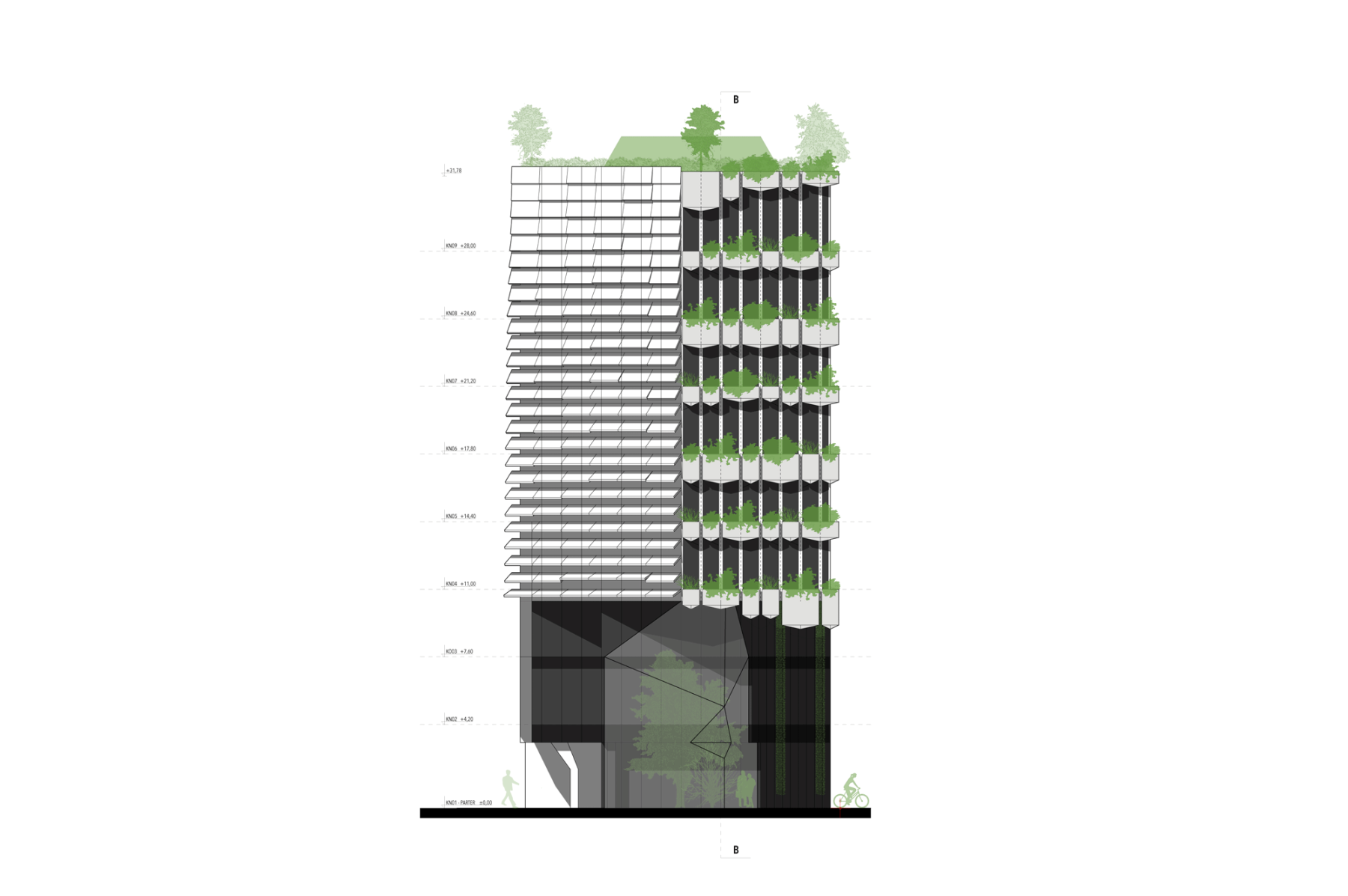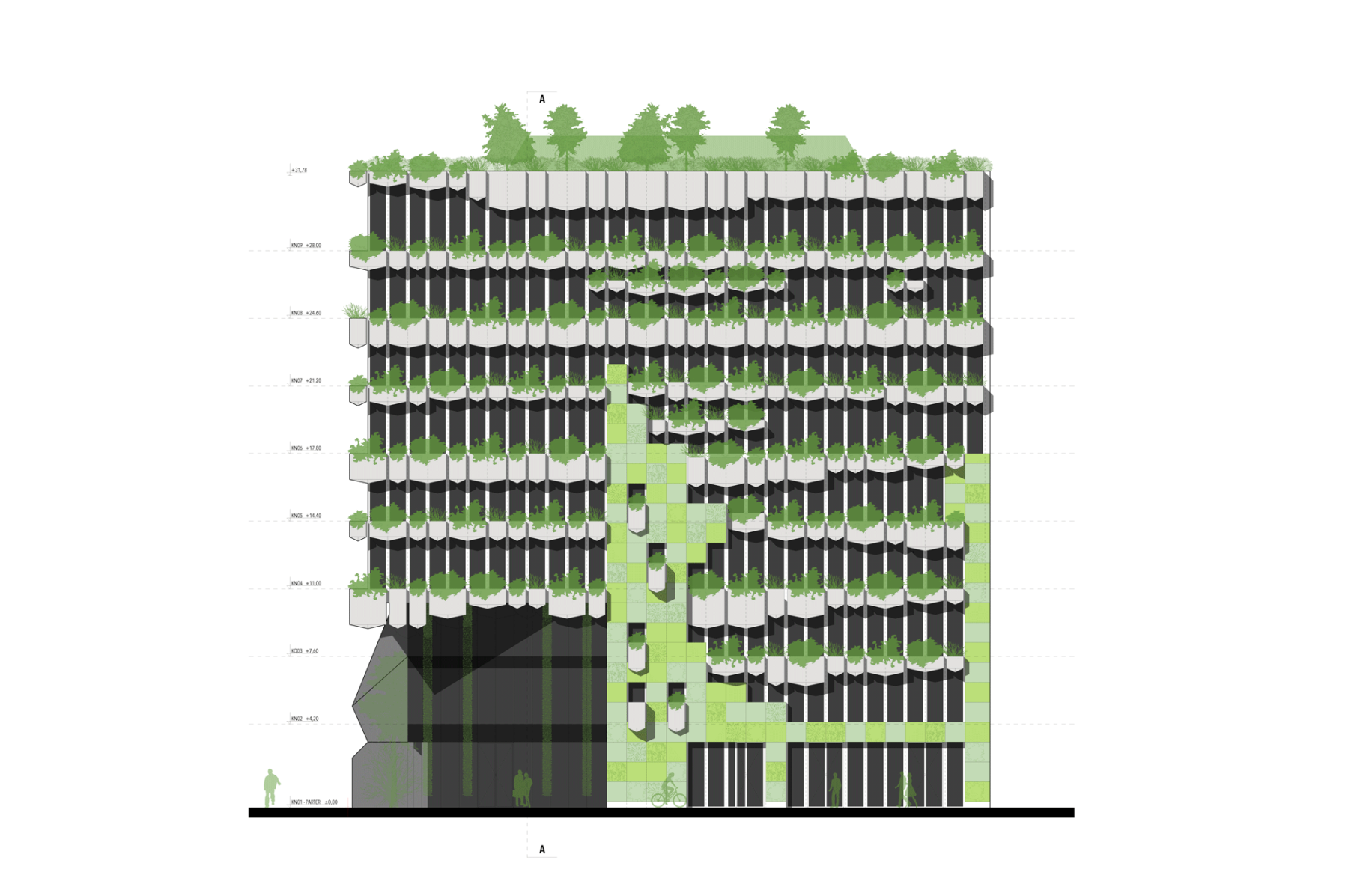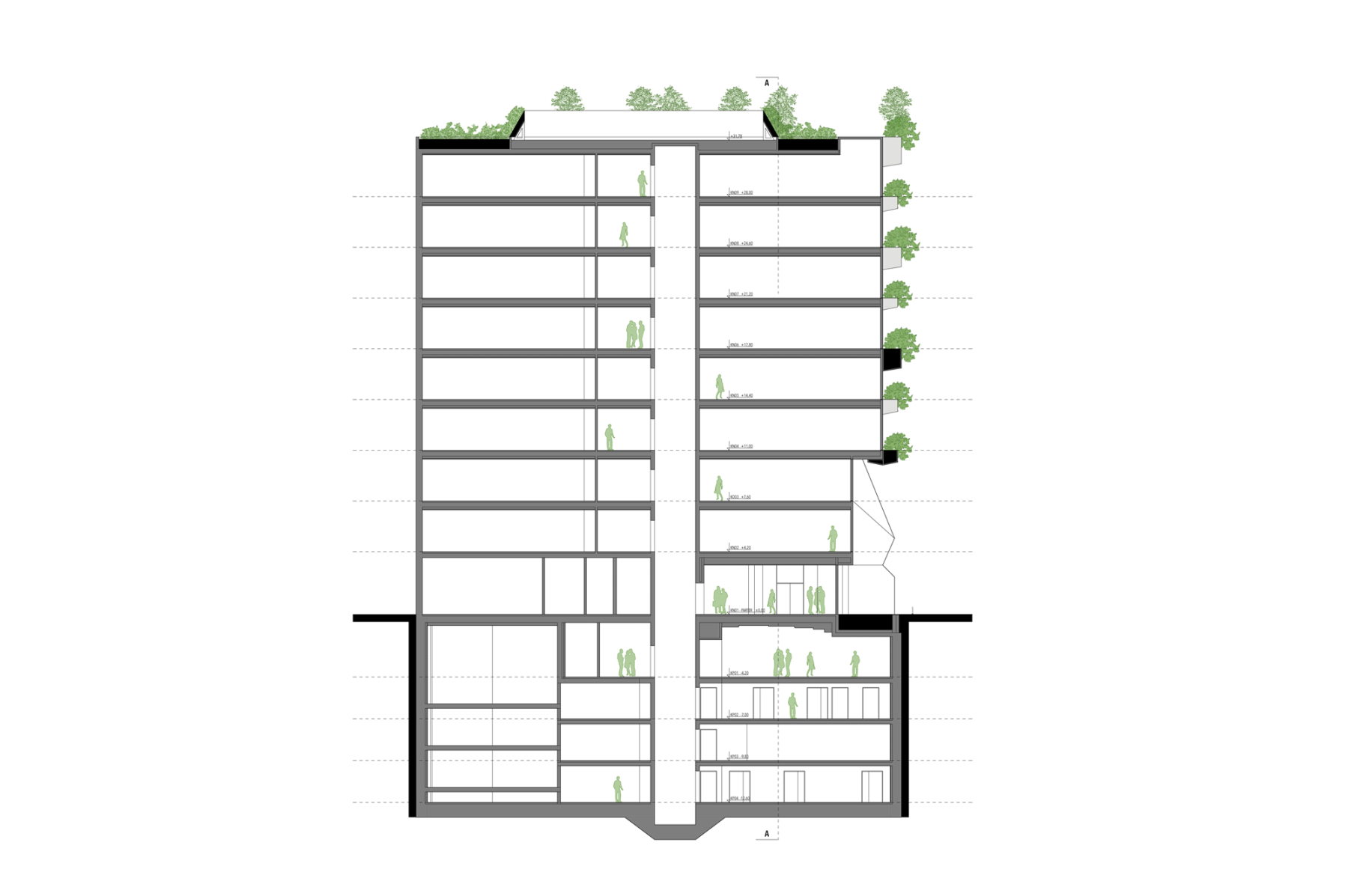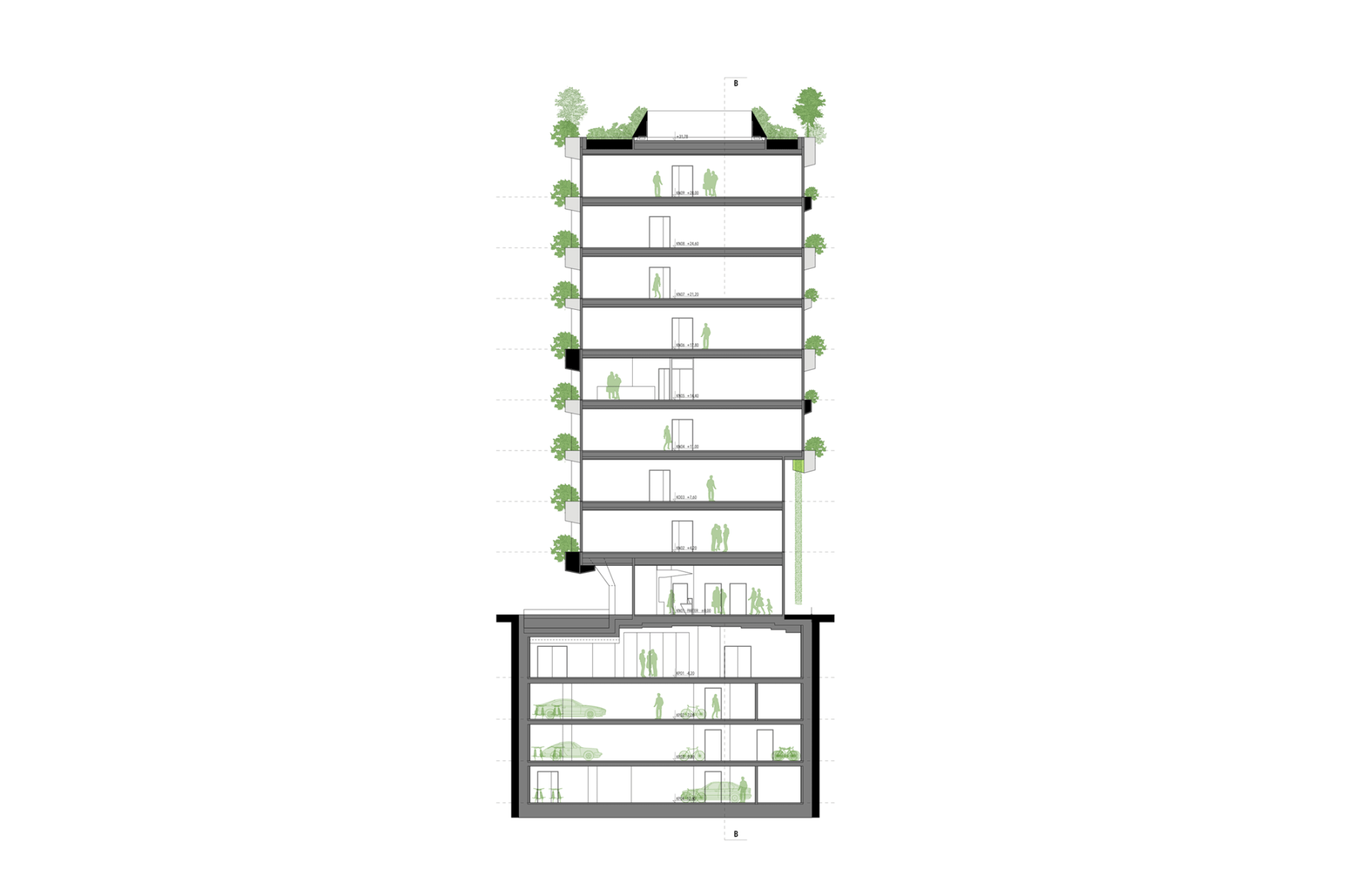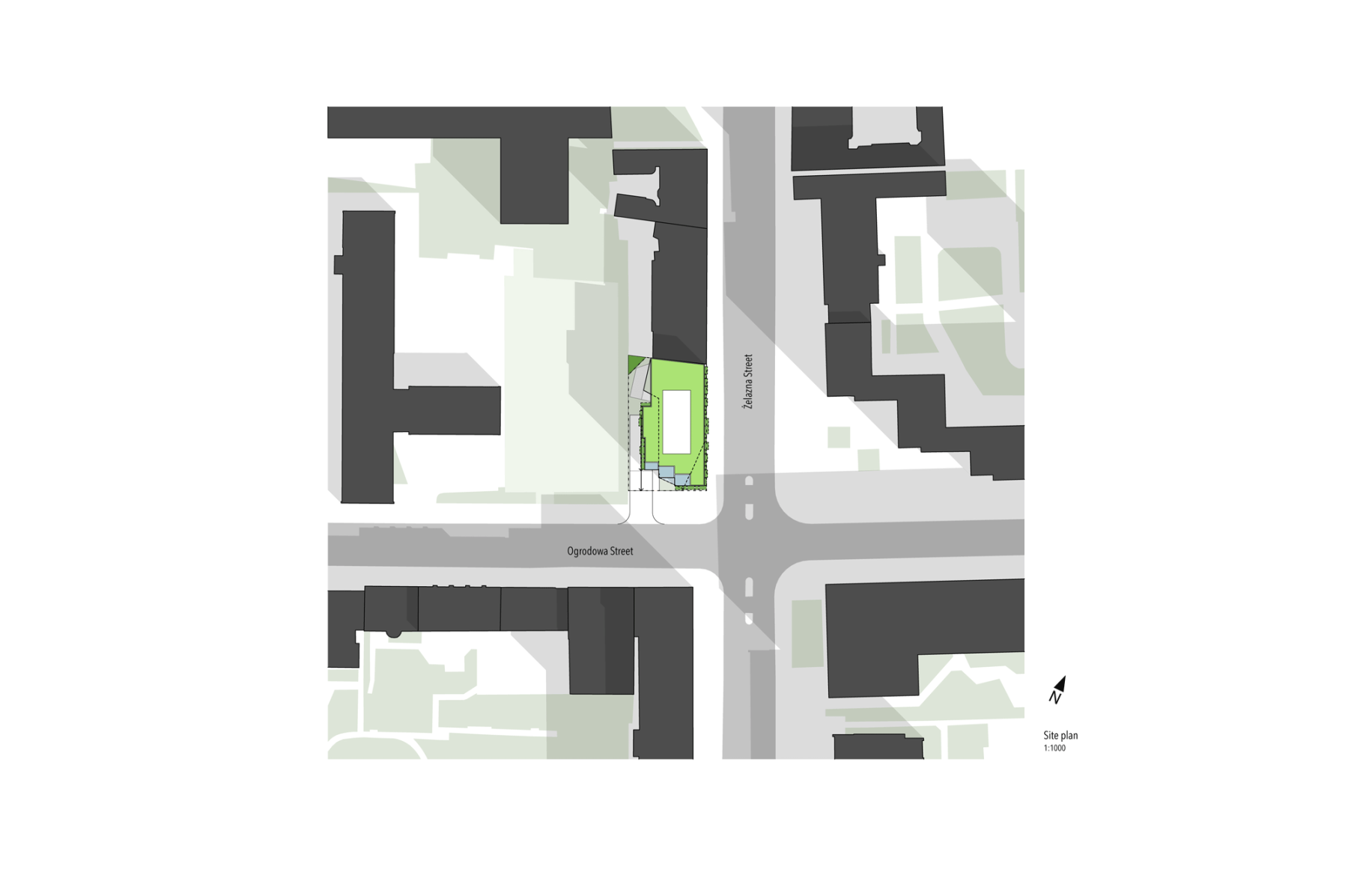The first skyscraper with a vertical garden in Warsaw would be built at 87 Żelazna St. This address is home to the Łukasiewicz-Itech institute, which plans to redevelop the building and create a modern headquarters here. The concept for the redevelopment was created by the FAAB studio. The task is not easy as this quarter of the city is very densely built-up. The building has been given the working name Lamp Łukasiewicz, which is a reference to the invention of the eminent Pole.
The building is 32 metres high and has four underground and nine above-ground storeys. The first underground storey will house a multifunctional exhibition and conference area, while the remaining storeys will house a car and bicycle parking area as well as technical and storage facilities. The space on floor -1 is intended to be a venue for events popularising science and innovation. Including workshops, of a cyclical nature, accessible to all age groups, also at weekends. On the ground floor and the first floor of the building, the INNO café and the Innovation Incubator are located. Both spaces are intended to create conditions for cooperation and information exchange between start-up organisations and representatives of science, industry and business. The remaining floors are occupied by office space and group work and meeting rooms.
In the area where the building is located, there is no space for a square or park accessible to the residents due to the dense built-up area. Due to this fact, among others, the Łukasiewicz Lamp, in an innovative way, introduces greenery into the urban space On the facades of the building, a vertical facade garden and a vertical facade park are envisaged. Within the vertical park, where plants are placed in prefabricated glulam pots, a greenery repository is planned to be realised. The park will provide optimal conditions for vegetation, for native (Polish) endangered and rare species. In the case of the vertical garden, it is planned to install a system based on prefabricated panels, filled with substrate. It is envisaged to use low plants, resistant to various weather conditions, including evergreens and seasonal flowering plants.
The vertical park and vertical garden, will be the basis for a long-term research project. Using sensors that measure, among other things, chlorophyll levels, data will be collected to optimise the process of creating a microclimate around the building. The process will be supported by dedicated solutions based on machine learning and artificial intelligence. The second aspect of the research project, will be the development of an automated plant care system, based on the use of inspection drones and care robots. In the initial phase of the project, it is envisaged that automated systems and humans will work together. The ultimate goal is to develop a self-correcting bionic system that can function without human intervention.
Project metrics:
Location: Poland, Warsaw, 87 Żelazna St
Client: Łukasiewicz Research Network / https://lukasiewicz.gov.pl/
Function:Office, exhibition, conference and training space
Area: 6 340 m2
Collaboration: Unique Vision Studio, Rafał Barnaś / http://www.uniquevisionstudio.com/
Contractor: Bartosz Dankiewicz Date:2023
Source: Studio FAAB / https://faab.pl/
About the studio:
Studio FAAB – Founded in Warsaw, Studio FAAB, engages in projects in Poland and internationally. We create architecture, landscapes, urban spaces, interiors and applied graphics, complemented by modern engineering solutions and consultancy. The aim of our detailed analyses and carefully managed projects, is to realise innovative and unconventional buildings and spaces. As a constantly evolving team, we seek solutions for the rapidly changing and evolving modern world, aspiring to look beyond the present. More about the studio: https: //faab.pl/
Read also: Architecture in Poland | Warsaw | Ecology | Technology | Places, Squares, Parks | Renovation | Metamorphosis

